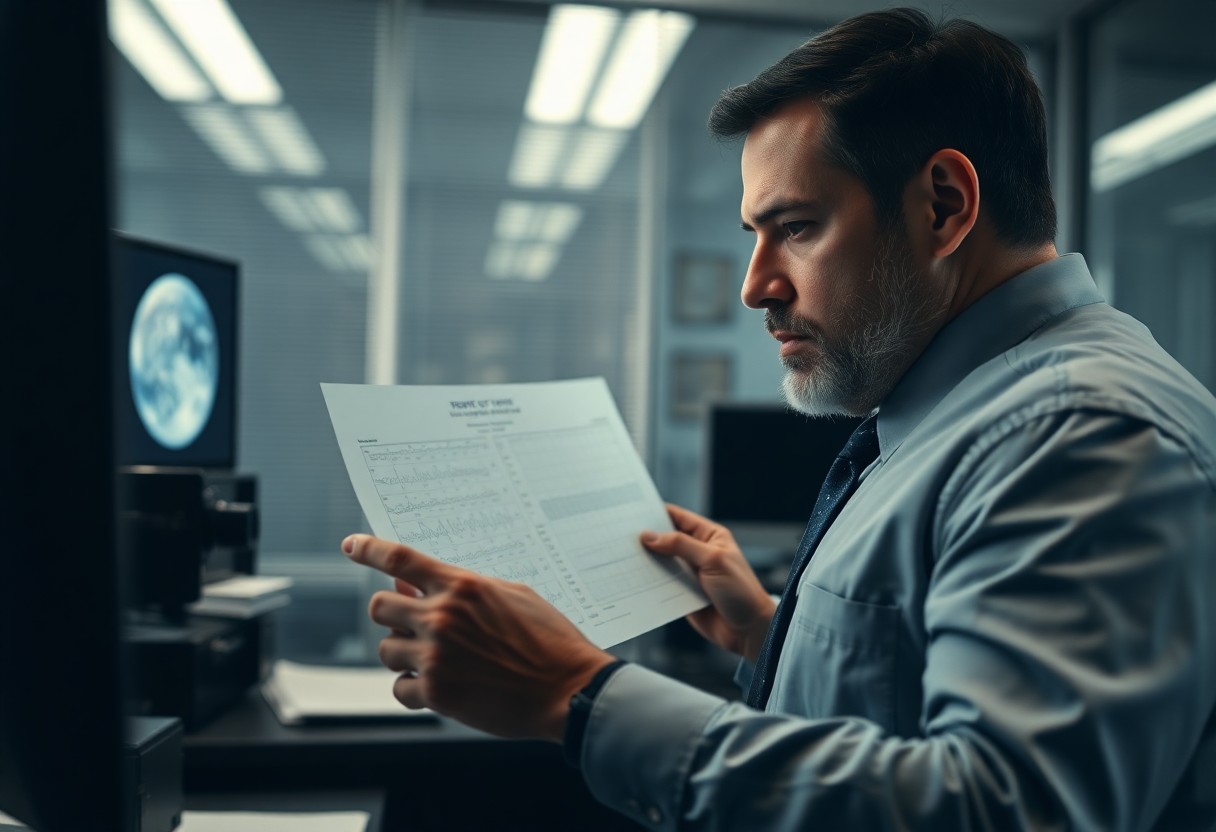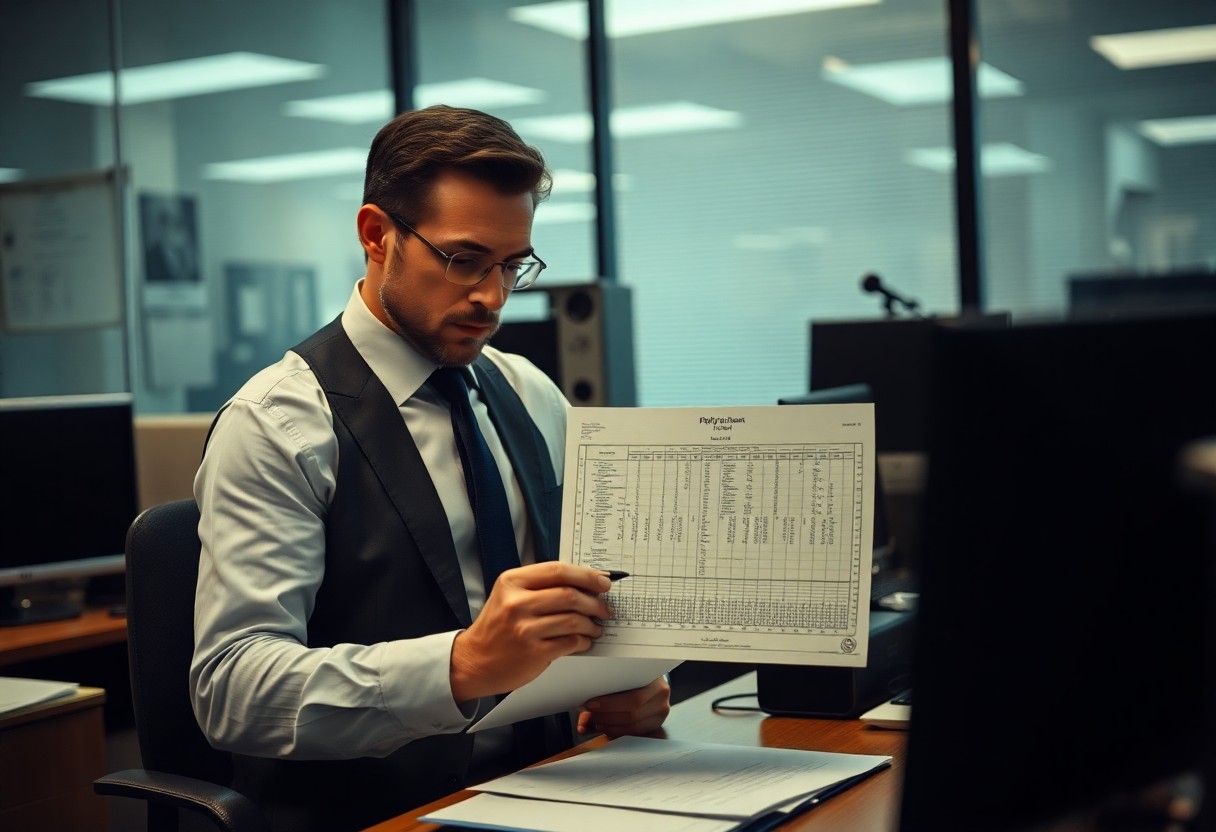
It’s imperative for you to understand the qualifications required for a polygraph examiner if you are considering hiring one for a specific case or situation. These professionals undergo rigorous training in various areas, including psychology, physiology, and the mechanics of lie detection technology. Understanding their credentials will help you discern the credibility of an examiner and ensure that the results obtained are accurate and reliable. In this post, you will learn about the fundamental qualifications and skills that a qualified polygraph examiner should possess.

Educational Requirements
A polygraph examiner must possess a solid educational foundation, typically requiring a minimum of a bachelor’s degree. This educational background provides the necessary critical thinking and analytical skills necessary for assessing and interpreting polygraph results accurately. Many states and employers may have specific educational criteria, so it’s important to familiarize yourself with local regulations when pursuing this career path.
Degree Preferences
Among the degrees that are preferred for aspiring polygraph examiners are those in criminal justice, psychology, or related fields. While a degree is not always mandatory, having a strong educational background can significantly enhance your understanding of human behavior, legal processes, and the psychological principles at play during examinations.
Relevant Fields of Study
Beside the preferred degrees, various fields of study can be beneficial for your journey toward becoming a polygraph examiner. These can include sociology, criminology, and forensic science, all of which contribute valuable insights into human behavior and investigative procedures.
Relevant fields of study equip you with a well-rounded knowledge base, enhancing your skills as a polygraph examiner. Understanding concepts from sociology can help you analyze social behaviors and interactions, while criminology and forensic science provide insights into criminal activities and investigative methodologies. This broad expertise enables you to conduct more effective examinations, ultimately supporting your credibility and effectiveness in the role.
Certification and Licensing
Some polygraph examiners must obtain specific certifications and licenses to practice legally. These credentials not only validate their training and expertise but also ensure that they adhere to professional standards within the industry. Understanding the requirements in your area is crucial if you are considering hiring a polygraph examiner or pursuing a career in this field.
National Certification Standards
Certification is offered through various recognized organizations that set national standards for polygraph examiners. These certifications often necessitate completing specific training programs and passing examinations, which confirm your competence in conducting polygraph tests. Achieving national certification can enhance your credibility and demonstrate your commitment to maintaining high professional standards.
State-Specific Licensure
To practice as a polygraph examiner, you must also obtain state-specific licensure, which varies from one state to another. This process typically includes meeting educational prerequisites, passing additional examinations, and fulfilling continuing education requirements to maintain your license. Familiarizing yourself with your state’s regulations is crucial to ensure compliance.
Licensure requirements vary by state and can include submitting proof of training, undergoing a background check, and completing a designated number of supervised polygraph examinations. Staying informed about your state’s requirements is imperative, as failing to comply can result in penalties or loss of your ability to practice. Licensing ensures that you operate within the legal framework and maintain the integrity of the polygraph profession.
Training Programs
It is crucial for aspiring polygraph examiners to complete reputable training programs that cover the necessary techniques and ethical standards required in the field. These programs typically include both theoretical and practical components to ensure comprehensive skill development.
Overview of Polygraph Training
Programs offer an in-depth study of psychological, physiological, and technical aspects of polygraphy. You will gain knowledge about various testing procedures, question formulation, and interpretation of results, preparing you for a career in this specialized area.
Hands-On Experience
Training includes practical exercises and simulations that are crucial for honing your skills as a polygraph examiner. This hands-on experience allows you to apply what you’ve learned in real-world scenarios, boosting your confidence and proficiency in conducting examinations.
To excel in polygraph examination, you must engage in hands-on experience during your training. This practical component involves conducting mock tests under supervision, allowing you to familiarize yourself with the equipment and processes involved. You will observe experienced examiners and receive feedback on your techniques, ensuring that you are well-prepared to handle actual examinations upon completion of your program.

Ethical Standards
Many aspects of ethical standards govern the practice of polygraph examination. Adherence to these standards ensures that examiners act with professionalism and integrity while respecting the rights and dignity of individuals undergoing testing. This framework not only enhances the credibility of the examination process but also fosters public trust in the accuracy and fairness of the results. As you explore this field, understanding these ethical standards will be vital for both your practice and the confidence of those you serve.
Ethical Responsibilities of Examiners
Above all, polygraph examiners have ethical responsibilities that include safeguarding the confidentiality of examinees, providing accurate results, and avoiding any conflicts of interest. You should prioritize the welfare of individuals being tested, ensuring they are treated with respect throughout the process. Upholding ethical standards is fundamental to establishing a professional reputation in the field.
Maintaining Integrity and Objectivity
The integrity and objectivity of a polygraph examiner are vital for the validity of the assessment results. You must approach each examination without bias and remain impartial throughout the process, which directly affects the outcomes and subsequent interpretations of the findings.
Responsibilities encompass avoiding any personal or external influences that could compromise your judgment. You should ensure that your methodology is consistent and scientifically sound, embracing transparency in your procedures. The commitment to integrity and objectivity not only enhances the reliability of your work, but it also ensures that those involved can trust the results, thus reinforcing the importance of ethical practice in your profession.
Key Skills and Attributes
To succeed as a polygraph examiner, you must possess specific skills and attributes. These include attention to detail, technical proficiency with polygraph equipment, and a strong foundation in psychology. Having a comprehensive understanding of the field is important, and for more information on becoming a polygraph examiner, check out this resource on Polygraph Examiner: What Is It? and How to Become One?.
Critical Thinking and Analysis
Any successful polygraph examiner needs excellent critical thinking and analytical skills. You will be required to evaluate complex information and interpret data from polygraph tests. Your ability to analyze results while considering emotional and situational factors will significantly influence your effectiveness in this role.
Communication and Interpersonal Skills
Attributes like communication and interpersonal skills are vital in your role as a polygraph examiner. You need to convey findings clearly and build rapport with subjects to ensure a comfortable testing environment. Your ability to listen actively and articulate your thoughts fosters trust and encourages cooperation during examinations.
Thinking effectively in terms of communication means you should be adept at handling sensitive information and difficult conversations. By maintaining professionalism and empathy, you can help alleviate the anxiety often associated with polygraph testing. This will ultimately lead to more accurate results and a smoother examination process.
Continuing Education
Not only is initial training important for a polygraph examiner, but ongoing education ensures that you remain skilled and knowledgeable in the field. This continuous learning process helps you to stay current with the latest techniques, technologies, and ethical standards in polygraph testing. Professional associations often provide resources and workshops that you can take advantage of to enhance your expertise.
Importance of Ongoing Training
Education in the field of polygraphy is not static. As with any profession, the landscape evolves, and you must adapt to new methodologies, advancements in technology, and updates in legal regulations. Ongoing training sharpens your skills and maintains your competence, which can greatly impact your career success.
Keeping Up with Industry Changes
About staying informed about industry trends and changes is vital for your role as a polygraph examiner. Regular training sessions, conferences, and seminars provide you with insights into the latest developments, ensuring you apply the most effective techniques in your examinations.
Another effective way to keep up with industry changes is by subscribing to relevant journals and publications. These resources will inform you about new research findings, technological advancements, and shifts in legal practices. Engaging with your peers through professional networks or forums can also provide valuable insights, ensuring that your practices remain relevant and effective as the field continues to evolve.
Summing up
Following this, you should understand that the qualifications of a polygraph examiner include specialized training in polygraph techniques, ethical standards, and state licensing requirements. It’s important for you to ensure that any examiner you consider is certified through a recognized program and complies with relevant laws. Additionally, familiarity with psychological principles and an ability to interpret physiological responses can greatly enhance an examiner’s effectiveness. Investing time in verifying these qualifications can ensure the reliability of the polygraph examination process.
